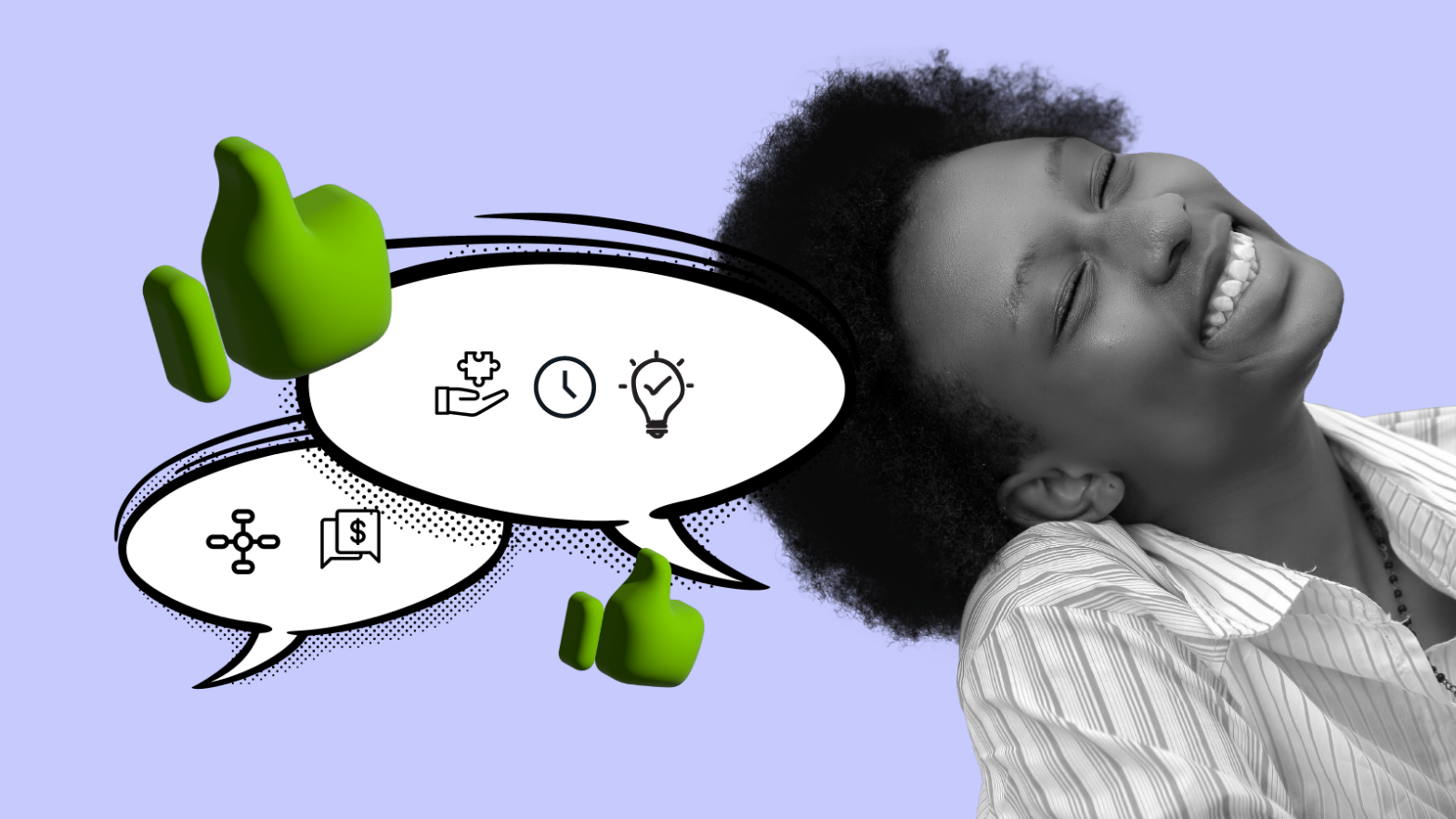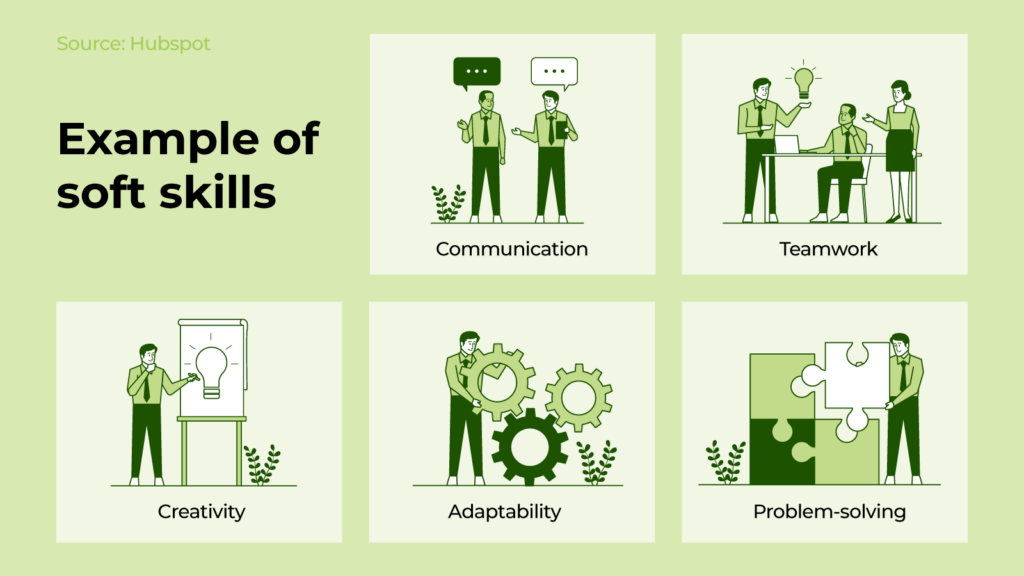
The significance of soft skills assessment in a collaborative world

Numerous organizations have successfully carved out a niche for themselves by mastering the technical aspects of their trade, leveraging decades of experience and specialized knowledge in their fields.
Their proficiency in this domain is evident in the products they create, the services they offer, and the reputation they uphold.
However, as they aspire to ascend to even loftier heights of leadership, distinction, and global influence, a crucial puzzle piece often appears missing from their strategic playbook: the candidate’s soft skills alone.
These skills, which encompass facets like effective communication, emotional intelligence, team collaboration, and adaptability, often serve as the intangible glue that binds teams, departments, and entire organizations together.
In the high-stakes game of corporate leadership, while technical prowess can secure a foothold, it’s these soft skills that truly differentiate the good from the great, and the industry leaders from the also-rans.
In the quest for true organizational excellence and influential leadership, embracing and nurturing these soft skills becomes an imperative, not just an option.
Delve deeper into the significant role of soft skills in business growth and how they can be the key to unlocking unparalleled success in leadership development and collaboration.
Unveiling the power of soft skills
Defining soft skills
Soft skills stand for example, in stark contrast to technical or “hard” skills, which are often associated with specific tasks or job functions. While hard skills are crucial and quantifiable, soft skills delve into the more nuanced realms of interpersonal and intrapersonal dynamics.
They embody the competencies that facilitate seamless interaction with others, fostering teamwork, empathy, and effective communication.
Moreover, they also encapsulate the intrapersonal skills necessary for self-awareness, self-regulation, decision making, and adaptability in ever-changing professional landscapes.
As the business world continues to evolve, the significance of these soft skills becomes increasingly important, bridging the gap between mere technical expertise and holistic professional success.
Why soft skills assessment are the backbone of leadership
. In this ever-shifting environment, soft skills have taken center stage. They are no longer optional but rather essential prerequisites for success. Why? Primarily because 89% of recruiters say that when a hire doesn’t work out, it usually comes down to a lack of soft skills.
As automation takes over repetitive tasks, employers are actively seeking individuals who bring uniquely human qualities to the table: individuals who can communicate effectively, build strong relationships, think critically, and demonstrate resilience in the face of challenges. This shift in demand underscores the escalating significance of soft skills in shaping today’s work environment.

Moreover, soft skills act as the binding agent, melding diverse personalities into a united and collaborative team.
For managers, equipped with these essential soft skills, the challenge of guiding varied talents becomes more manageable and productive, elevating the team from just functional to truly exceptional.
As the modern workplace continues to evolve, emphasizing emotional intelligence and interpersonal acumen, soft skills have transcended from being “nice-to-have” to absolutely indispensable for any aspiring leader.
A deep dive into key soft skills for workplace success
Let’s face it: a fulfilling and successful career takes more than just hard skills. While those technical abilities are undoubtedly important, they represent only one side of the coin. To truly thrive in today’s dynamic work environments, you need a robust set of soft skills. Why are these skills so important? Because they dictate how you interact with people, approach challenges, and navigate the complexities of the modern workplace.
Communication and interpersonal skills
Effective communication sits at the heart of success in any workplace. It’s about conveying your ideas clearly, actively listening to others, and fostering an open dialogue. Strong interpersonal skills go hand in hand with communication. This means building positive relationships with colleagues, understanding diverse perspectives, and navigating workplace dynamics with tact and empathy.
Leadership and teamwork abilities
You don’t need a fancy title to be a leader. Leadership skills are about taking initiative, inspiring others, and working collaboratively towards shared goals. Equally important is the ability to function effectively within a team. This encompasses active participation, respectful collaboration, and a willingness to both contribute and learn from others.
Problem-solving and analytical thinking
Every workplace presents its share of challenges. Problem-solving and analytical thinking are crucial for identifying problems, evaluating possible solutions, and making sound decisions. This involves critical thinking, a systematic approach, and the ability to analyze information objectively to reach informed conclusions.
Flexibility and adaptability
The only constant in today’s workplace is change. Flexibility and adaptability are essential for navigating shifting priorities, embracing new technologies, and thriving in an environment of constant evolution. This means being open to new ideas, willing to step outside your comfort zone, and capable of adjusting your approach as needed.
Creativity and innovation
Creativity and innovation are highly prized assets. These skills empower you to think outside the box, generate novel solutions, and contribute fresh perspectives. Whether you’re brainstorming new ideas or finding innovative ways to improve existing processes, a creative spark can set you apart.
A 2008 poll by SHRM, as reported by the Department of Labor, highlighted the significance of certain soft skills. The poll identified critical thinking/problem solving, leadership, professionalism/work ethic, teamwork/collaboration, and adaptability/flexibility as key soft skills valued by employers. This underscores the importance of cultivating these skills to thrive in a dynamic workplace.
The art of measuring soft skills: Challenges and solutions
Let’s be real for a second – assessing soft skills like communication, teamwork, and adaptability is no walk in the park. Unlike concrete technical skills that can be evaluated through standardized tests, soft skills reside in the realm of behavior and personality. This inherent subjectivity makes their assessment a fascinating challenge.
Understanding the difficulties in soft skill assessment
Imagine trying to capture lightning in a bottle – that’s what assessing soft skills sometimes feels like. Why is it so tricky? Let’s break down the core challenges:
- Subjectivity: Every observer interprets behavior through their own lens, potentially leading to inconsistencies in evaluation. What one person perceives as assertive, another might see as aggressive.
- Context dependency: The way a soft skill manifests itself can vary greatly depending on the situation. Someone who’s a brilliant communicator in team settings might clam up during a formal presentation.
- Measurement difficulty: Traditional exams fall short in capturing the nuances of soft skills. How do you accurately quantify empathy or creativity on a multiple-choice test?
These complexities make it clear that assessing soft skills requires a more nuanced and multi-faceted approach than traditional methods allow.
Quantitative vs qualitative approaches
Navigating the world of soft skill assessment often means choosing between two distinct paths:
- Quantitative approaches: These methods rely on measurable data, often gathered through tools like multiple-choice assessments, situational judgment tests, and even gamified simulations. While they offer a sense of objectivity, they can sometimes miss the subtle nuances of human behavior.
- Qualitative approaches: This path delves deeper, utilizing techniques like behavioral interviews, open-ended questionnaires, and observation in realistic settings. While incredibly valuable, these methods can be resource-intensive and require trained assessors to interpret the gathered information.
The key to truly effective soft skills assessment often lies in finding the sweet spot – a strategic blend of both quantitative and qualitative approaches. By combining objective measures with insightful qualitative data, a more complete and accurate picture of an individual’s soft skill proficiency can be painted.

Innovative methods for assessing soft skills
Soft skills are personal attributes that enable someone to interact effectively and harmoniously with others. Assessing these skills, however, can be challenging. Unlike technical skills, which are easily quantifiable, soft skills are more nuanced and harder to measure. That’s where innovative assessment methods come in. Let’s delve into some of the latest approaches used by companies to evaluate candidates’ soft skills.
Behavioral interviews: Revealing true potential
Traditional interviews often fail to accurately assess a candidate’s soft skills. Behavioral interviews, on the other hand, focus on understanding a candidate’s past behavior to predict their future performance. This method uses open-ended questions that prompt candidates to share specific examples of how they’ve handled situations requiring different soft skills.
For example, instead of asking “Are you a team player?”, the interviewer might ask “Tell me about a time when you had to work with a difficult team member. What was your role, and how did you handle the situation?”. This approach provides valuable insights into a candidate’s conflict-resolution, communication, and teamwork skills.
Simulations and role-playing activities
Experiential learning offers a practical approach to soft skill assessments. By engaging in simulations and role-playing activities, individuals can demonstrate their soft skills in a controlled environment. These activities allow assessors to observe how candidates handle real-life scenarios, such as resolving customer complaints, negotiating deals, or managing conflicts within a team.
Imagine a sales role where candidates participate in a mock sales pitch. This kind of simulation offers valuable insights into their communication, persuasion, and problem-solving skills. Similarly, role-playing activities can assess leadership, teamwork, and adaptability by presenting candidates with challenging scenarios that require them to think on their feet and make decisions under pressure.
Use of advanced psychometric tests
Psychometric tests have long been used in recruitment, but advancements in technology have paved the way for more sophisticated tools. These tests delve deeper into personality traits, cognitive abilities, and emotional intelligence – all of which contribute to a person’s soft skills repertoire. By leveraging data-driven insights, these tests provide a more objective and comprehensive understanding of a candidate’s strengths and weaknesses.
These soft skills assessments go beyond traditional personality tests. They use algorithms and data analysis to identify patterns and predict how individuals are likely to behave in different situations. This information is crucial for organizations as they strive to build high-performing teams with individuals who possess complementary soft skills.
Peer feedback and 360-degree assessments
The modern workplace is increasingly collaborative, making peer feedback an invaluable tool for soft skill assessments. 360-degree assessments, which gather feedback from multiple sources (supervisors, peers, subordinates, and even clients), offer a holistic view of an individual’s soft skills. This method provides a more comprehensive understanding of how individuals interact with others and navigate workplace dynamics.
In addition to performance reviews, regular peer feedback sessions foster a culture of continuous learning and development. When implemented effectively, this approach not only helps individuals identify areas for improvement but also fosters a more collaborative and supportive work environment.

Such controlled environments not only serve as testing grounds but also as arenas for refinement. Here, one can obtain instantaneous feedback, recalibrate approaches, and iteratively enhance vital interpersonal skills.
This cycle of practice, feedback, and improvement fortifies both the skill set and the individual’s self-assurance.
As the adage goes, “Practice makes perfect.” Over time, consistent engagement and refinement in these settings cultivate heightened confidence, robust management capabilities, and overall proficiency.
Thus, when eventually confronted with genuine, unscripted challenges beyond this sheltered milieu, individuals find themselves well-prepared, armed with the soft skills assessment tools, and confidence to navigate complexities with grace and efficacy.
Final word
In the quest of career progression, technical skills undoubtedly form the bedrock, providing stability and groundwork. However, it’s the important soft skills that act as the architects, molding and elevating professionals from mere contributors to standout leaders.
These important soft skills—ranging from communication, empathy, and teamwork to adaptability and critical thinking—are the scaffolding that facilitate the ascent to leadership heights and pinnacle of professional excellence.
By actively identifying and nurturing these vital personality traits, you make sure you not only enhance your repertoire but also carve a distinct path for yourself.
Embracing and honing these important soft skills transforms you from being just another cog in the machine to a dynamic leader, steering the direction and shaping the future of the workforce.
Discover how DevSkiller soft skills assessment tools can help you with soft skills management.
Agendar uma demonstração com um dos nossos especialistas em produtos ou assista a este rápido Vídeo de demonstração de 5 minutos para saber mais.
Perguntas frequentes
- Is it possible to develop soft skills later in one’s career?
Absolutely! With dedication, practice, and the right resources, soft skills can be cultivated at any stage of one’s career. - How can organizations support soft skills development?
Organizations can offer training programs, mentorship opportunities, and create an environment that values and promotes interpersonal excellence and encourage soft skills development. - Are soft skills industry-specific?
No, soft skills are universally applicable, transcending specific industries and roles. - How to measure the ROI of soft skills training?
While more intangible than technical skills, the ROI of soft skills training can be gauged through improved team dynamics, increased productivity, and enhanced leadership capabilities. - Do soft skills outweigh technical skills in leadership roles?
Both are vital. However, in leadership roles, the ability to guide, inspire, and collaborate often hinges more on soft skills.




